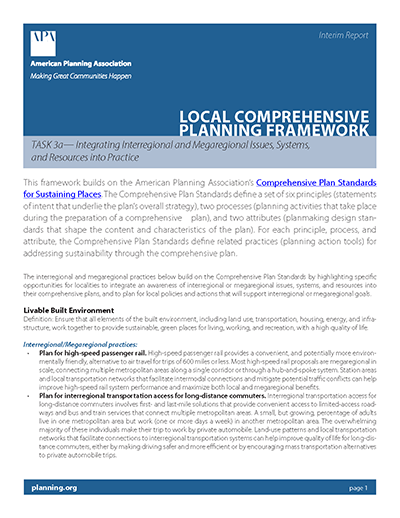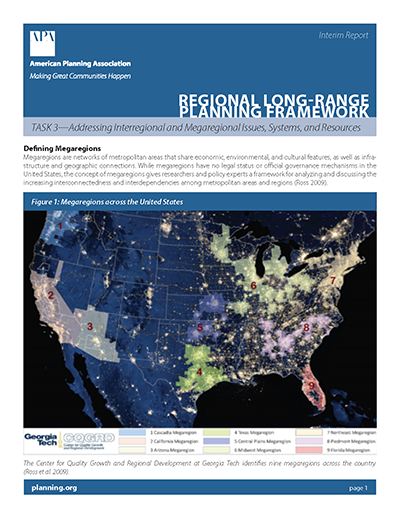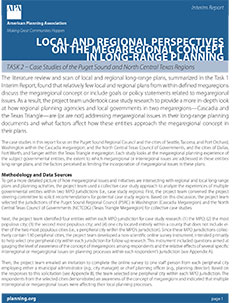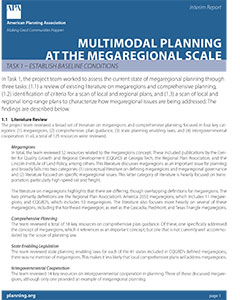Multimodal Planning at the Megaregional Scale
Project Overview
The megaregion — networks of metropolitan areas that share economic, environmental, and cultural features, as well as infrastructure and geographic connections — is a powerful, empirically grounded concept for characterizing problems and opportunities that profoundly impact regions and local communities across multiple systems at larger geographic scales.
The megaregions concept is transitioning from planning theory to planning practice, due in large part to a growing awareness that many systems, from transportation networks to watersheds, extend beyond metropolitan boundaries and can benefit from coordinated approaches to planning.
Through this Federal Highway Administration–funded project, the American Planning Association and the Center for Quality Growth and Regional Development worked to determine the state of megaregional planning practice through a literature review, a scan of local comprehensive and regional long-range plans, and case study research focused on two regions within defined megaregions. This effort resulted in the development of planning frameworks, highlighting opportunities for local and regional planning agencies to address megaregional issues in their respective long-range plans.
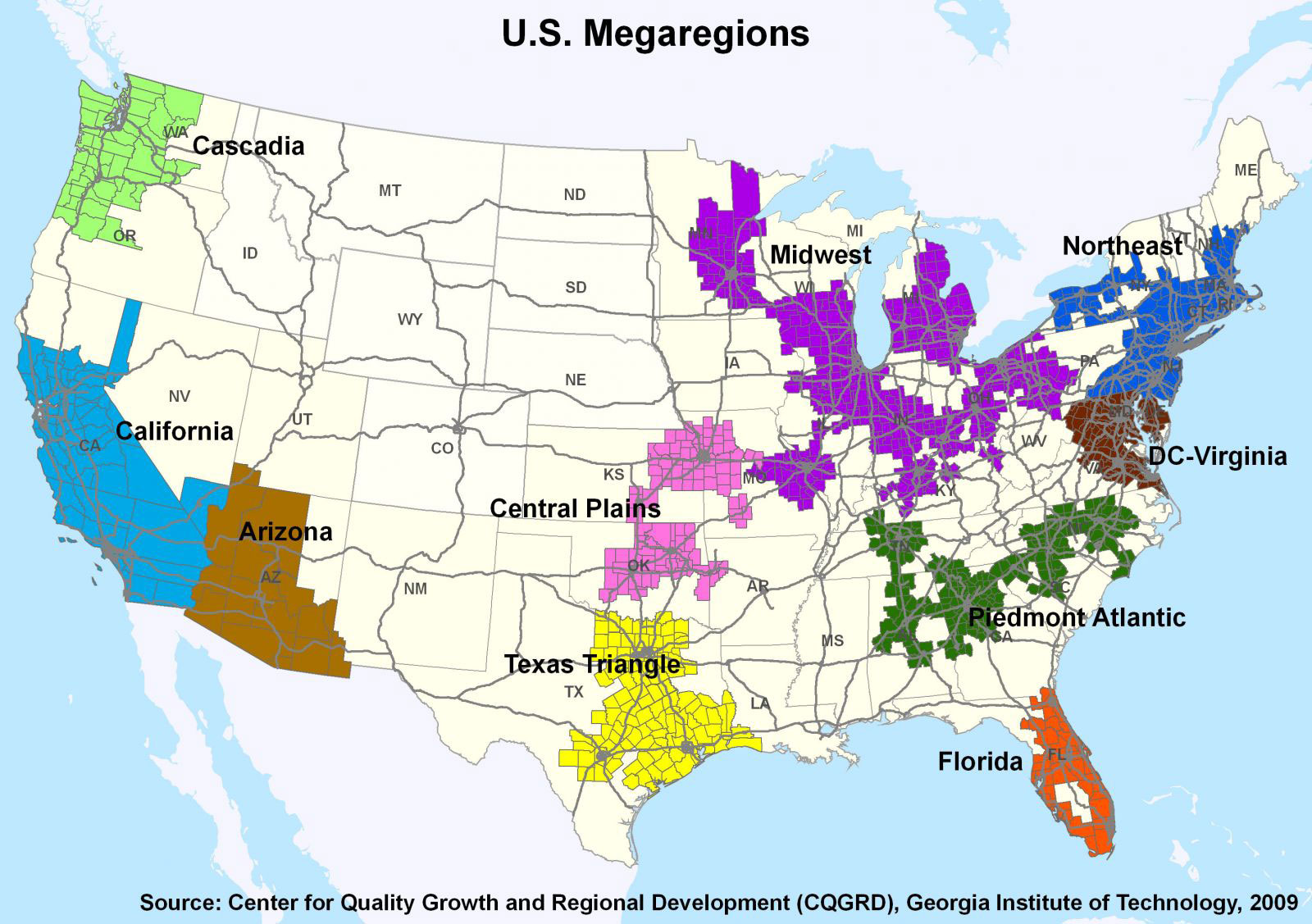
Project Reports
Multimodal Planning at the Megaregional Scale
Executive Summary
This executive summary provides an overview of the work conducted by APA and the Center for Quality Growth and Regional Development at the Georgia Institute of Technology on opportunities for incorporating the megaregional concept into local and regional long-range plans.
Local Comprehensive Planning Framework
Integrating Interregional and Megaregional Issues, Systems, and Resources into Practice
For the third task, the project team developed a framework for incorporating interregional and megaregional systems, issues, and resources in regional long-range and local comprehensive plans. The local planning framework builds on APA's Comprehensive Plan Standards for Sustaining Places.
Regional Long-Range Planning Framework
Addressing Interregional and Megaregional Issues, Systems, and Resources
The regional planning framework looks at areas where regional planning agencies can engage and presents recommendations based on the defined scope of the long-range transportation planning process.
Local And Regional Perspectives on the Megaregional Concept in Long-Range Planning
Case Studies of the Puget Sound and North Central Texas Regions
For the second task, the project team undertook case study research to provide a more in-depth look at how regional planning agencies and local governments in two megaregions are (or are not) addressing megaregional issues in their long-range planning documents. The case studies examine the Puget Sound Regional Council and the cities of Seattle, Tacoma, and Port Orchard, Washington, in the Cascadia megaregion and the North Central Texas Council of Governments and the cities of Dallas, Fort Worth, and Sanger in the Texas Triangle megaregion.
Multimodal Planning at the Megaregional Scale
Establish Baseline Conditions
In the first task of this project, the team worked to assess the current state of megaregional planning by reviewing existing literature on megaregions and comprehensive planning, identifying criteria for a scan of local and regional plans, and conducting a scan of local and regional long-range plans to characterize how megaregional issues are being addressed.
Addressing Megaregions in Long-Range Plans
The webinar below introduces APA's FHWA-funded work on megaregions. The program covers the importance of the megaregion as a planning concept and the opportunities these areas present to address issues and challenges that span jurisdictional boundaries. The webinar also presents case study examples from the San Diego Association of Governments' San Diego Forward: The Regional Plan and The Southeast Florida Regional Transportation Plan, a multi-MPO planning effort. These planning efforts address both interregional and megaregional considerations.




